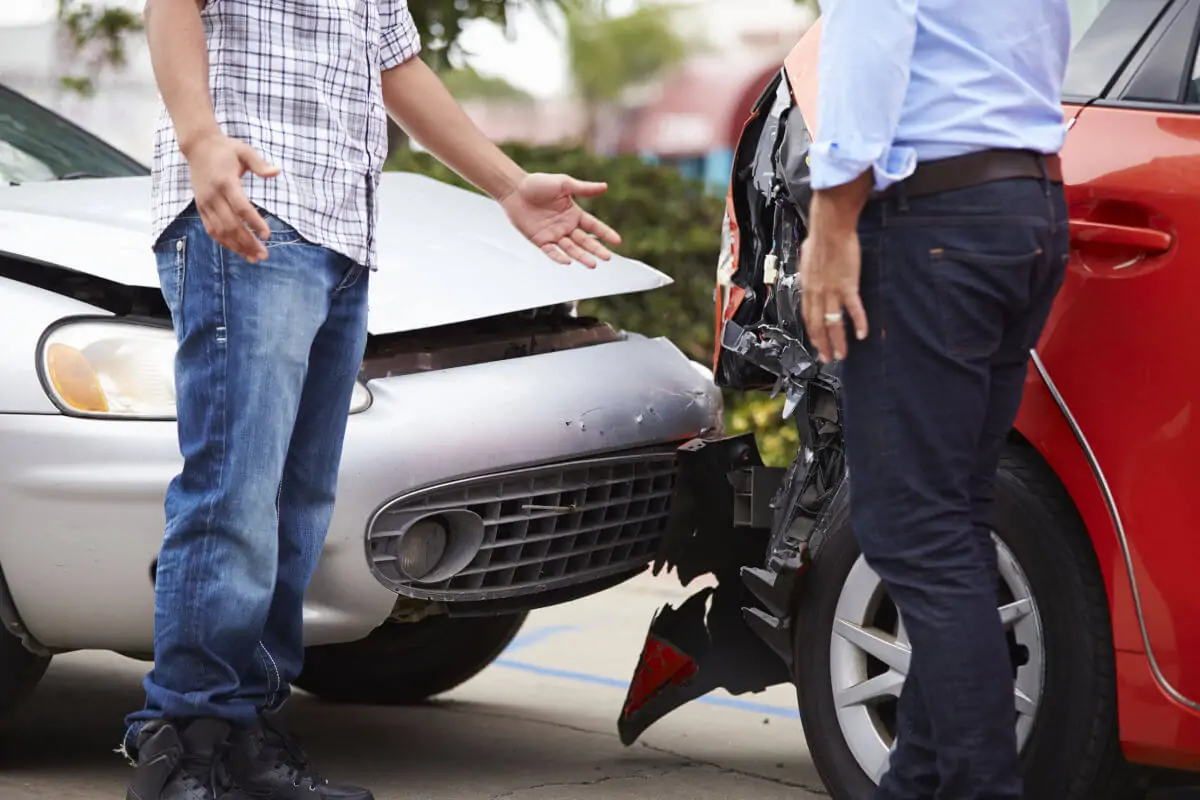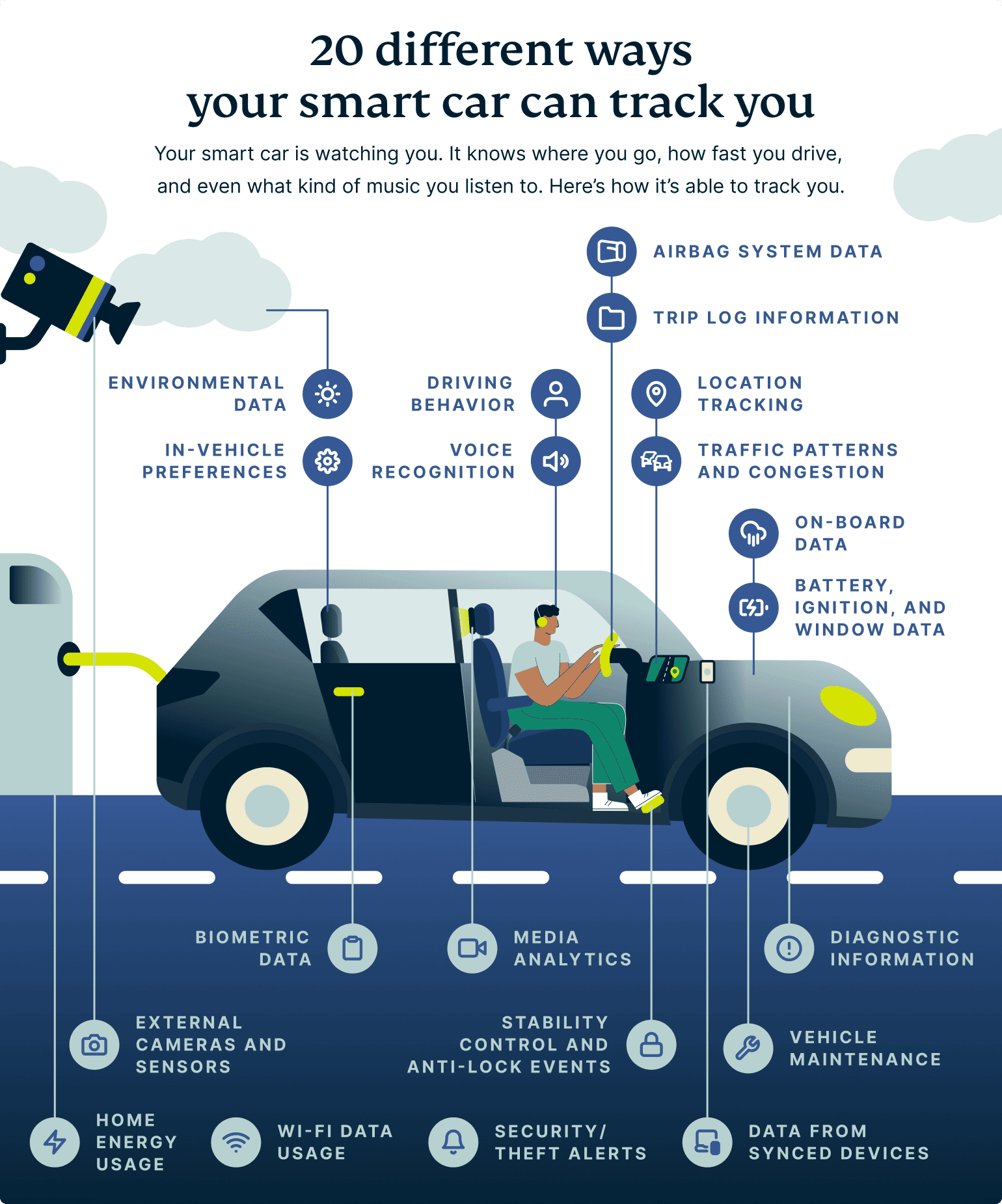The emergence of smart cars is not just a technological concept anymore. It’s an actuality that is changing the driving experience dynamically. These vehicles are not just vehicles on wheels; they’re intelligent companions with a technological edge, fitted with artificial intelligence, IoT, and advanced communication capabilities.
Technology has provided drivers with incredible advances regarding safety and comfort. Still, it also transformed vehicles into data-gathering machines. Despite some of these advances offering convenience to drivers, they also pose security risks. However, what information a smart car gathers and how it uses it is only sometimes clear to car owners.
Understanding Smart Car Data Collection:
Smart cars are fast devices connected to their navigation and entertainment systems. According to ExpressVPN, vehicles now gather data in the same way as tech companies. They offer little information on storing and using this information and don’t offer motorists any way to opt out.
It is out that your vehicle is likely to be collecting a variety of information without even realizing that it is doing so. The newer the car, the more data it will likely gather. It’s not only the police who can collect this data but the criminals, too. Accessing this information without authorization can lead to risks like the theft of identity, stalking, or even manipulating a person’s behavior because the data provides a wealth of information about the person’s personal life beyond their smartphone.
The majority of car manufacturers need to take the time to make proactive efforts to safeguard user data and draw legal lines. They hide the data they’re collecting and disclose behind privacy policies written in a language only lawyers can comprehend.
Ways Your Smart Car Is Tracking You Right Now
Your Car’s Entertainment System Can Be A Threat
If you connect your phone to your car using Bluetooth or a USB connection, the entertainment system can access all the data stored on your device. It may include some of your sensitive data like phone books, call logs, text messages, photos, location data – just about everything you can imagine.
GPS Tracking
Research on smart cars shows that standard GPS trackers link to the internet to relay information on the vehicle’s movement. Although they are great in following cars, specifically rental vehicles, couriers, and other hired equipment, they pose a significant security risk.
Insecure Smart Cars Applications
Even smartphone apps can be risky for smart cars. Some mobile apps for vehicles have been found to have serious security weaknesses which car hackers can exploit. Although there is little code encryption for door locking and unlocking or encryption of passwords and usernames, these apps may pose other severe security issues for smart cars.
Telematics Devices
Many insurance companies offer insurance plans based on your usage that allow you to install a telematics gadget to track your driving patterns and, ideally, to reward your safety or, at a minimum. These companies must provide the data they’re analyzing to ensure that if you opt to go with one, you’ll know exactly what data it’s collecting.
Possible Smart Car Control Hacks
Smart cars with integrated software, particularly those connected to the internet or mobile apps, are vulnerable to the same issues as computers and mobile phones. The most critical vulnerability for smart cars is the protocol or code vulnerability.
How do you protect your data from your smart car technology?
- You can secure your data by blocking your phone from syncing to the car’s infotainment system. This means you’re cutting off any data connection in the phone. Data like call logs, social media accounts, photos, videos, and other information stored in the phone will be safe.
- Remember to delete any information if you’re in the rental car. If you connect your phone or use Bluetooth to call or for directions, you must clear your data before leaving the vehicle. This stops car rental staff and other passengers from accessing your data.
- If you are selling your vehicle, reset the garage door opener programmed in your car. If you leave it unprogrammed, you give the new owner access to your house.
- You can find streets rather than the addresses you travel to using your vehicle’s navigation system. It isn’t a good idea to leave your home address or other details accessible to anyone. Cross streets or other landmarks will reduce the risk of exposing your data.
Conclusion
With modern technological advancements, smart cars offer current functionalities, but we must also consider our privacy. Your car’s sensors might know much more about your details than you think. So, take the appropriate security precautions to operate your smart car without cybersecurity threats.












